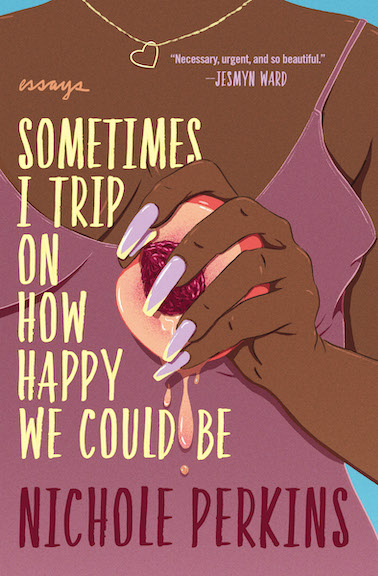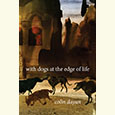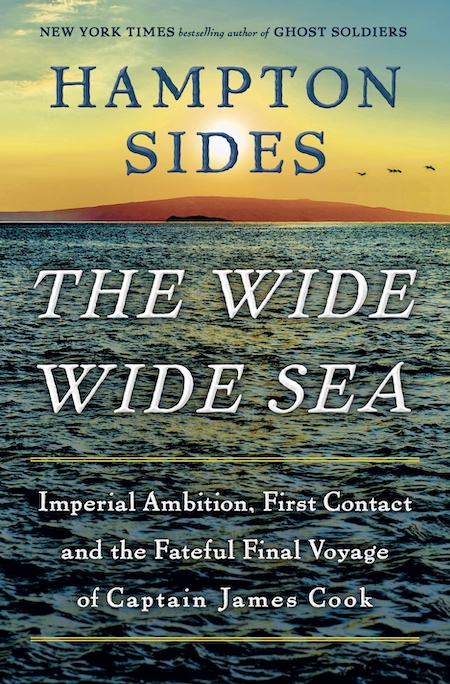The Sublime and the Ridiculous
Frank Bascombe returns for a final road trip in Richard Ford’s Be Mine
“How does an idea, long dormant, revive and parade its bright banner into life as a fully renewed goal?” asks the narrator of Richard Ford’s latest novel, Be Mine. “To be happy — before the gray curtain comes down. Or at least to consider why you’re not, if you’re not. And whether it’s worth the bother to worry about.”
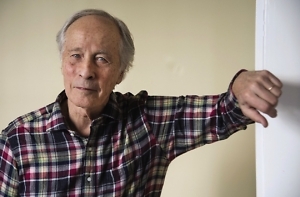
Anyone who has encountered it before will recognize this voice: our old friend Frank Bascombe, back for a final holiday-themed road trip across the American landscape, both physical and existential.
Frank made his literary debut almost 40 years ago in The Sportswriter (1986). A surprise hit both critically and commercially, The Sportswriter captured the zeitgeist of educated, urbane, liberal white baby boomers entering middle age. We first meet Frank as a man adrift — divorced, doing work that pays well enough but doesn’t feel especially important, dating women too young for him — not so much seeking meaning as hoping to stumble upon it. One might mistake Frank’s existential quest for a midlife crisis but for the fact that it is triggered by a very specific trauma: the death of a child. Frank’s painful attempts to reconstruct a sense of purpose after a destabilizing loss ring true, primarily thanks to the grace and wit of Ford’s now-famously luminous prose.
A second Bascombe novel, Independence Day, won both the Pulitzer Prize and the PEN/Faulkner Award in 1995. The action of that novel revolves around a planned holiday road trip with Frank’s troubled teenage son Paul to visit sports halls of fame, culminating with what turns out to be a disastrous visit to Cooperstown — home of the Great American Pastime — on July 4. A third installment, The Lay of the Land, followed in 2006, where we find Frank facing abandonment and prostate cancer. In 2014, Ford revived Frank’s voice in Let Me Be Frank With You, a slim collection of stories revolving around the aftermath of Hurricane Sandy along the Jersey shore. Along the way, Frank Bascombe joined the ranks of famous literary avatars like Nathan Zuckerman, Harry “Rabbit” Angstrom, and especially Binx Bolling of Walker Percy’s The Moviegoer, his clearest antecedent and obvious inspiration.
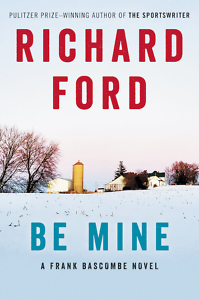 Though Frank Bascombe is often called an “Everyman,” his personality and worldview are anything but universal, even among bourgeois white male boomers. Readers don’t identify with Frank so much as we discover ourselves through our reactions to his peculiar musings, longings, and mishaps. The unique literary alchemy of the Bascombe novels derives from Richard Ford’s strikingly lyrical sentences and his capacity for isolating and expressing the deep pathos of so-called ordinary life. Consequently, Frank Bascombe — and Richard Ford — still hold a sort of oracular eminence for readers who discovered them contemporaneously, in the right place at the right time to tune into their wavelength.
Though Frank Bascombe is often called an “Everyman,” his personality and worldview are anything but universal, even among bourgeois white male boomers. Readers don’t identify with Frank so much as we discover ourselves through our reactions to his peculiar musings, longings, and mishaps. The unique literary alchemy of the Bascombe novels derives from Richard Ford’s strikingly lyrical sentences and his capacity for isolating and expressing the deep pathos of so-called ordinary life. Consequently, Frank Bascombe — and Richard Ford — still hold a sort of oracular eminence for readers who discovered them contemporaneously, in the right place at the right time to tune into their wavelength.
I count myself among those who read The Sportswriter and Independence Day (in reverse order, in my case) at a particularly impressionable moment. Perhaps because of this, I must admit, I found Be Mine a difficult, sometimes painful read — not because it lacks its predecessors’ quality, but because it is so clearly a dirge, and not one meant to console. I want it all to work out for Frank, whether he deserves it or not. But what would that mean — for things to work out — for Frank Bascombe?
Frank is old now. He’s cranky, and understandably so. His first wife Ann is deceased; his second wife Sally has left him (again). His body is failing him. The end is in sight. Frank’s own inevitable demise is overshadowed by that of Paul, now 47 and stricken with ALS. Be Mine is structured around a planned Valentine’s Day visit to Mt. Rushmore, echoing the Independence Day father-son journey to the Baseball Hall of Fame three decades prior. We know in advance how this trip’s going to end.
Ford is no sentimentalist; the one-time “troubled teen” Paul is only slightly less frustrating as a pudgy, balding, 47-year-old bachelor whose aloof churlishness has not abated in the face of a fatal disease. One of the most heartrending aspects of Be Mine is how well it depicts the reality that you can love someone and not like them very much. Frank struggles vainly (Paul would appreciate the pun) to reconcile his love and loyalty with the cognitive dissonance between himself and both of his children (his daughter Clarissa, whom Ford draws as a Republican lesbian, wickedly inverting the traditional parental prejudices, appears infrequently via phone conversations to argue with Frank about Paul’s care).
Even in his more vulnerable moments, Paul finds himself incapable of sincere expression, choosing instead to crack bad jokes or lash out at Frank. And yet Ford’s gift for dialogue and attention to minute detail do more than enough to convey the bemused melancholy of a man grappling with his imminent death and the grief of a father outliving not one but two of his children.
If this all sounds a little heavy, well, it is. And yet Frank never loses his sense of humor, and Richard Ford has not lost his gift for finding the poetry in the tragic, the mundane, and even the absurd. Frank isn’t interested in persuading himself or anyone else that everything turns out okay for everyone — that happiness can be attained and should be expected or even desired. But his persistent alertness to both the sublime and the ridiculous in everything he encounters suggests that he still finds the trip worth taking. “It’s completely pointless and ridiculous, and it’s great,” Paul says. He’s speaking of Mount Rushmore, but he might as well be talking about life.

Ed Tarkington is the author of two novels: The Fortunate Ones (2021) and Only Love Can Break Your Heart (2016). He lives in Nashville.
